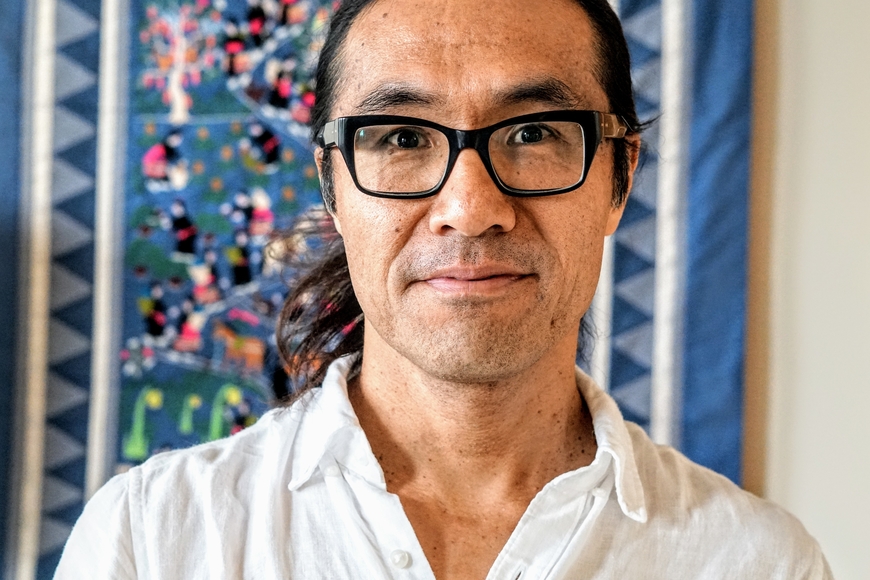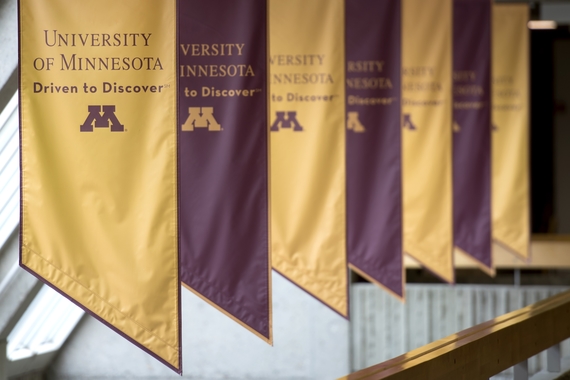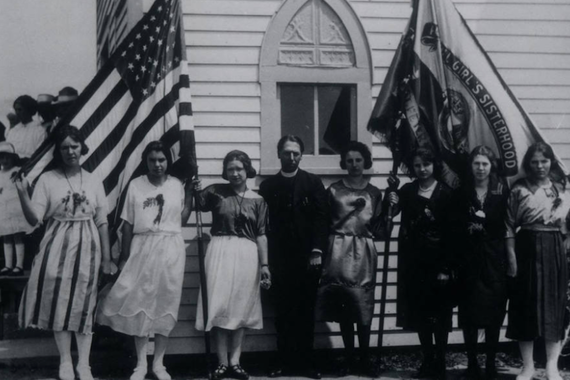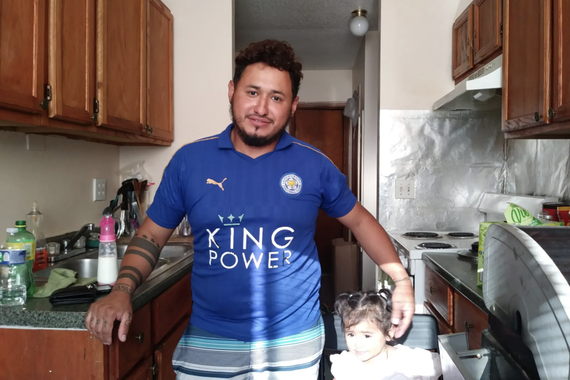Welcome Professor Yuichiro Onishi as Acting Director of the IHRC
Greetings!
I am delighted to share my first E-digest message with all of you.
My name is Yuichiro Onishi, Associate Professor of African American & African Studies and Asian American Studies. Starting this Fall semester, I am beginning my two-year term as Acting Director of the Immigration History Research Center (IHRC) while my colleague Erika Lee is on a research leave as a Carnegie Fellow. Erika will return as IHRC Director in July 2020. I want to, first and foremost, thank my colleague Saengmany Ratsabout for serving as Acting Director during the summer months to enable this transition. I look forward to working closely with Saengmany and IHRC Archives staff, especially Curator Ellen Engseth to advance our shared mission of preserving and expanding the understanding of immigrant and refugee life in North America and the world over.
I have been here long enough to have actually worked in the leaky warehouse on Berry Street, the home of the IHRC under the leadership of the late Rudi Vecoli, Founding Director. I was a graduate student in history, then, hired to do basic cataloging work for the Northwest Architectural Archives, also housed in the same building. That was my summer job. Daily, from Uptown, I rode my bike on Franklin Avenue, always dreading the last stretch of my commute—a steep climb over I-94 and up the mound through Prospect Park. That summer, my friend and fellow graduate student Jennifer Guglielmo, today a professor of history at Smith College and the author of the award-winning book Living the Revolution: Italian Women’s Resistance and Radicalism in New York City (UNC Press 2010), was there as well, pedalling up the hill to get to work at the IHRC.
This warehouse was also where I began my training in what former IHRC Director Donna Gabaccia, a towering intellectual in the field of global migration studies, has called the “Minnesota School of Immigration History.” I took Rudi’s graduate seminars in 1997-98. The Minnesota School had long been a pacesetter in the field, and the world Rudi forged was the key. He taught us to be attentive to European immigrants’ everyday lives, their interiority and transnational trajectory, that is, to enter, from the bottom up, the realms of loss, longing, hurt, creativity, imagination, and re-invention to comprehend their struggles, social relations, and above all human agency. But the field was changing; it could no longer be predominantly focused on European immigration. Rudi knew, and some students certainly made this imperative known in his seminars. We pushed the boundaries.
Meanwhile, Minnesota’s American Studies, then, chaired by Dave Roediger, the historian of labor and race, was transforming dynamically. I began riding the new waves created by graduate students in American Studies, History, and English who were engaging in critical race studies, ethnic studies, feminist studies, gender and sexuality studies, transnational and diasporic studies, and the study of Marxism. Most important, where my own intellectual formation is concerned, both Rudi and Dave were collaborating. Together, they launched The Seminar on Race, Ethnicity and Migration (REM), the forerunner of Global Race, Ethnicity, Migration (Global REM), IHRC’s interdisciplinary forum and lecture series, re-conceptualized by Donna and co-convened with the Institute for Global Studies. Around this time, Erika Lee joined the faculty. In looking back, I achieved intellectual maturity largely as a result of searching efforts to connect race and immigration; such was the dialectic of Vecoli and Roediger’s schools of thought. This experience was hardly static. In the end, I made up my mind to ground myself in the study of racial formation in modern America, particularly as it relates to social movements, labor, immigration, and empire-building.
During my tenure as Acting Director, I want to be mindful of this experience. Just as we labored to draw lines to connect race and immigration to at once animate tensions and new formations in the late 1990s, I want to bring into conversations a host of categories, paradigms, and political struggles that are not typically connected to embolden the historical study of immigrant and refugee life, then and now.
The upcoming daylong IHRC symposium called Migration Across the Global Regimes of Childhood, which will be held on Friday, September 21, makes such a move. It is conceived and organized by Dr. Kelly Condit-Shrestha. The symposium introduces such categories as “childhood” and “childhood studies” to rethink the field of migration studies generally. But it goes further. It promises to engage directly with the contemporary problem, particularly the current administration’s family separation policy. Our keynote speaker, Laura Briggs of UMass Amherst will guide us through the challenge of facing reality and connecting the past to the present. Taken from their parents at the border, migrant children are being detained in Custom and Border Protection facilities across the country. Variations of historical memories of state-sanctioned violences have already been recalled in the aftermath of this policy of “zero tolerance.” Condemnations came from many corners, drawing lines to connect the off-reservation Indian boarding school experience, the World War II Japanese American incarceration, and the systematic denial of Black family formations so central to the American institution of racial slavery and punishment to the present crisis. The IHRC’s first symposium of this academic year will issue a stark reminder of still present colonial and racial pasts and in so doing recast emergent conversations on what the historian Tera Hunter calls “the long history of child-snatching.”
I am very much looking forward to advancing dialogues and research in the coming months.
-- -- --
Yuichiro Onishi teaches in the Department of African American & African Studies and Asian American Studies Program. He received his Ph.D. in history from the University of Minnesota, Twin Cities in 2004. His research interests include the study of Black radicalism and internationalism, African American intellectual history, transnational American studies, critical race studies, and Asian American studies. Before returning to Minnesota to join the faculty in 2007, he taught in the Center for Ethnic Studies at Borough of Manhattan Community College of The City University of New York. He is the author of Transpacific Antiracism: Afro-Asian Solidarity in 20th-Century Black America, Japan, and Okinawa (NYU Press, 2013). He also published an essay on the intricacies of the Okinawan diaspora in the context of changing U.S. immigration law, U.S. colonialism toward Okinawa, and statehood for Hawai‘i in the early Cold War years; it appeared in American Quarterly in December 2012. Currently, he is co-editing, with Fumiko Sakashita of Ritsumeikan University in Kyoto, Japan, the volume titled Transpacific Correspondence: Dispatches from Japan’s Black Studies (forthcoming, Palgrave Macmillan). It introduces the intellectual authority of largely unknown Japanese African Americanists’ thought and scholarship. He is also working on the collaborative community-engaged book project that charts more than a century long Japanese American history in Minnesota called Becoming Japanese Minnesotans: History, Community, and Activism. He has been a member of the IHRC and IHRC Archives Advisory Council since 2013 and currently sits on the Board of the East Side Freedom Library, a labor and immigration history education center located in the East Side neighborhood of Saint Paul. He is an active member of the Education Committee of the Twin Cities Japanese American Citizens League.



